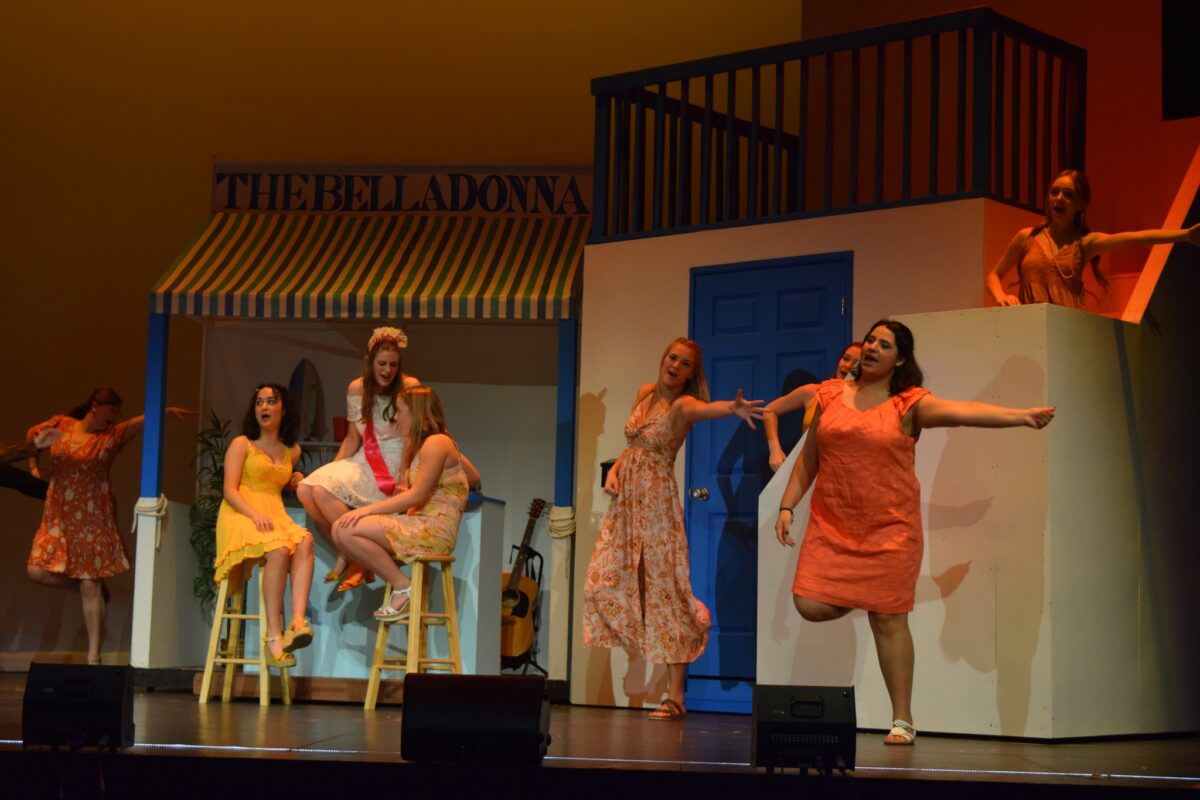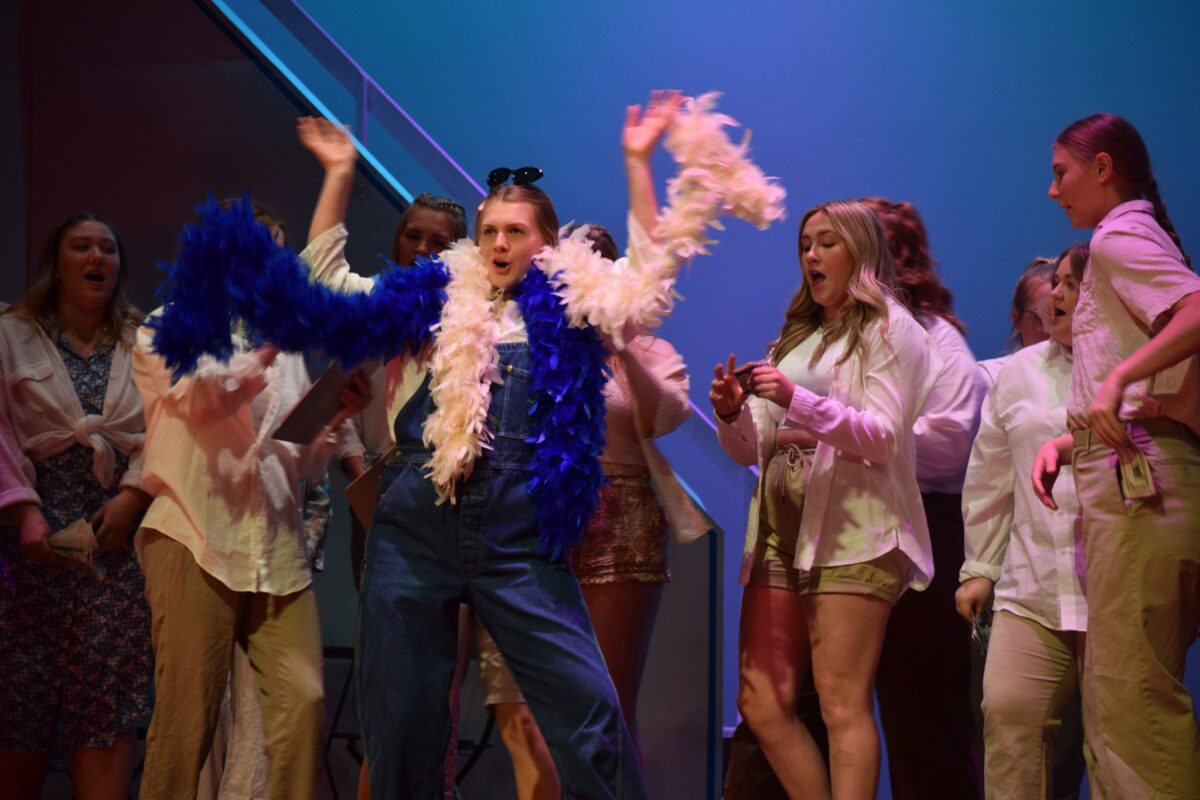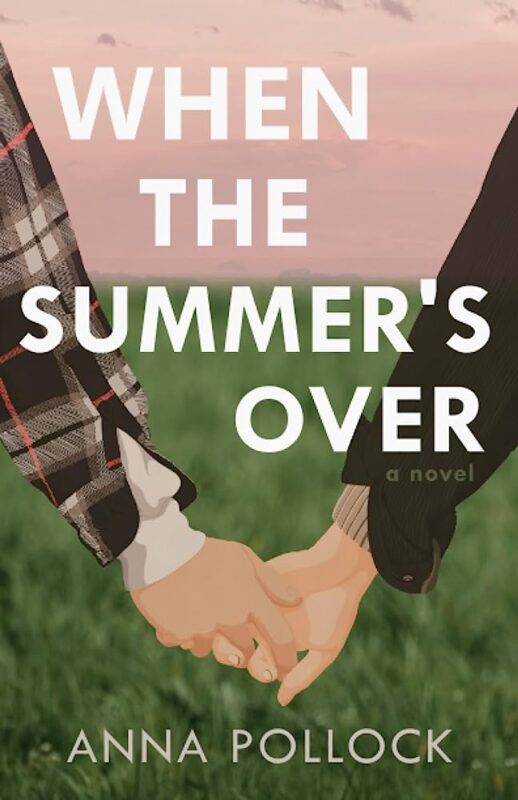“The biggest thing that I try to do in my community is to celebrate where people often shy away.”
Anna Pollock joins us from Waseca, Minnesota. She is the Theater Director for Waseca high school with 10 years of experience in the arts and entertainment industry. She has lived all across the country and found her way back to her hometown to create change in rural Minnesota.
We are so fortunate to have Anna in our community at 100 Rural Women and to have had the opportunity to speak with her for our Spotlight Profile Series
Since this interview, Anna has had a few exciting changes! Anna was recently selected as the Executive Director at Prairie Lakes Regional Arts Council in Waseca, MN. The Prairie Lakes Regional Arts Council serves the artistic communities of the 9-county area of southcentral MN by supporting the creation and presentation of diverse art forms, fostering equitable access to arts opportunities, and integrating arts and culture to enhance quality of life in our communities.
Anna has also recently self-published her debut novel, When the Summer’s Over, available now on Amazon.
What is your connection to rural?
I’m currently in Waseca, Minnesota which is about an hour south of the Twin Cities. I was born and raised here. I graduated from Waseca High School, went off to college in the Twin Cities, lived out of state for a couple of years, and then came back about seven years ago now. Which feels crazy to say.
Education/career path:
My background is more in the entertainment industry and marketing. I worked in events for a very long time. Then, in 2020 learned about an organization called Lead For Minnesota and found out they were headquartered in Waseca, my hometown. So, I reached out to Benya Kraus who is the Executive Director. I got this spark in me about rural Minnesota. I wanted to learn more about what divides rural and urban spaces and also what brings them together. So, in 2020 I embarked on a new journey with Lead For Minnesota as our Deputy Director for two years.
During that time, I was the manager of a fellowship program and oversaw about 20 different people across the state doing really incredible community work within different pockets of Minnesota. All the way from Hibbing down to Winona. I learned that there is a beautiful, interwoven structure in Minnesota working to strengthen communities both in and outside of the Twin Cities. So really, I found my passion in giving back to my own hometown.
I now work as the Theater Director at the Waseca Drama Department and have been doing that now for a full year.
You skipped a little part of your story- Let’s go back to your education and work in the entertainment industry
I studied Music Business in St. Paul at McNally Smith College of Music. I was working in events; I was at pretty much every bar and venue across the Twin Cities and lived with x’s on my hands. When I was there, I had this opportunity to work with the GRAMMY Foundation. They came to Saint Paul for a week-long GRAMMY Camp where high school kids can learn about the industry and how to make a career in music. I was their point person. I reserved their rooms, gave them tours, and made sure they were all taken care of.
About six months later I graduated. My supervisor at McNally Smith, Chelsea Dammen (now Chelsea McNally), was one of those mentors in your life and those role models and people who have been cheering you on. She was that for me at that time in my life. She of sent out a note to her contacts and said, “I have a student worker who’s graduating in December and would love to work on either coast or in the Twin Cities.” The GRAMMY Foundation were the first people to respond back with an open temp position. I interviewed and got the job over the call. It was very exciting. I moved to LA three months later and stayed with The Recording Academy for about two years. First, as a temp for 6 months then with MusiCares. This charity “helps the humans behind music because music gives so much to the world.” MusiCares provides support for the artists behind the music by helping them to access health and welfare services with core values in service, inclusivity, empowerment, and integrity. I then shifted and worked with the former CEO and president of The Recording Academy, Neil Portnow, for about six months. I learned a lot. I got to work a GRAMMY show which was a lot of fun, a lot of energy, and very exciting.
I felt like I had a lot of life in those two years in LA, but after two years I came to the conclusion that I wasn’t happy. My priorities kind of shifted when I was in LA in a way that didn’t feel genuine to me. So, I moved back to Minneapolis. I worked at WCCO radio, Jack FM, and events all across the Twin Cities. I always felt the most energized when I was working events so it’s fun to be able to take that into the theater now.
I’m sure there were some tough things that you had to overcome along the way. Can you think of a couple or one that really sticks out to you?
I think it’s really easy to come up with the big ones, right? One of the largest disappointments I had was understanding that LA wasn’t it for me. Knowing that it was kind of the Mecca that I was going towards when I was getting my music business degree, where else are you going to go? Right? It’s either New York or L.A.
With that, I think that there are just minor disappointments that happen throughout your career. Every day, every week. I talk about how my priorities shifted in a way that I didn’t want them to. And so when I went into this industry in LA, I saw how hierarchies of structure treat people. I saw how certain things are prized. In Minnesota, we have other priorities.
The biggest disappointment for me was meeting the people in those higher positions whom I had been looking up to my entire life. You learn that they’re human and have their own quirks and that they may not take the time to understand about the people around them. I think it just showed me that leadership isn’t necessarily something that you can bulldoze your way through. It’s something that you have to learn as you go. There are a lot of moments in my past I can look back to and see poor leadership by someone who was in a really high leadership role. This is one of the biggest discouragements; understanding that people who have this power don’t know how to use it. I came back to my hometown and found leaders who maybe don’t have these big titles but really taught me how to lead.
It’s easy to talk about the big ones and how you overcome them, but I don’t think that you can overcome the big ones without overcoming the small ones that you deal with daily. For me, that was just seeing people in action and stepping up to be leaders or falling flat and, in some ways, hurting the culture around them.
Who or what has been your biggest inspiration?
Chelsea (Dammen) McNally, who was my supervisor at McNally Smith College of Music and she was the Director of Events. She had that title and she knew how to lead in a way that made me so energized to go to work every day; so energized to be the best person I could be for everyone around me.
How do you lead and create change in your community and how can your community better support rural women?
The biggest thing that I try to do in my community is to celebrate where people often shy away. Going back to the theater aspect, there’s so much celebration in theater. I’m going to call a spade a spade, theater is inherently queer. Theater has been shaped by queer people. If we think of gender, that was always something that was intrinsic to theater. Women couldn’t be on the stage for the longest time, so men then had to dress as women up on the stage. I feel I need to bring these roots of theater to the table. And maybe not outwardly; maybe I’m not showcasing it in every single show. But to the actors up on stage, I think the most comforting and rewarding thing is to celebrate where there is normally hate, dismissal, or even violence.
So, the small pocket of time that I get to interact with these students every day is only a celebration. We get to celebrate what’s up on stage. We celebrate what’s off stage. Not shy away from it. If I get to change one student’s mind about whether Waseca hates them or Waseca loves them, that’s it for me. Waseca loves them. I love them. I want them to thrive and be the best, most authentic person that they can be.
I’m working at the high schools so that kids who went through some of those tough things never have to go through that again. I can have these conversations with kids who are struggling or who are having real questions about the world and I won’t have to shy away from it like some adults did when I was a kid. The kids in theater are a certain group of kids who, in my eyes, need to be protected; someone needs to stand up for them. The fact that I get to do that in my hometown is really special.
And that student might stay or they might leave Waseca. That’s totally up to their own priorities. The biggest thing that I hope to do is to ensure that the students who are in my productions understand that Waseca loves them rather than feeling like Waseca hates them and wants them to leave/go away. So, I hope that that’s how I am starting change in the community. Even if it is through a somewhat transient group of people who might be leaving in four years to go off to college or off to work or whatever they choose to do.
I’ve been working on a kind of revitalization in Waseca theater. I created a booster program for our organization called Waseca Drama Department. I’m just hoping to do more theater in the community of Waseca. We’re hoping to do a community show every single year too outside of the high school. I also serve right now on the Arts Council Board.
It’s been such an exciting thing within Waseca to have this revitalization of theater again. Theater in Waseca has been such a long-held tradition. I don’t know if there are many other things besides food and art that can bring people together in a way that is so celebratory. We are doing Mamma Mia next! It’s so easy to look at that and say that it’s fluff and it’s just dancing and singing up on stage, but what I understand from Mamma Mia is it’s a lesson about found family. It’s a lesson that blood is important, but friendship and care are also very important. And if a girl has three dads, a girl has three dads and that’s amazing and they all love her and she loves them. Art can really change the community without it pushing it down your throat.


In reflection of all of this, what is some advice that you would give to your former self?
Oh it’s so hard to give advice to someone who I think, at that time in my life, would not have taken it. I’d give different advice to different stages of my former self. If I look at my high school self, I would absolutely sit me down and say “live a little.”
Going to my college self, I think I would probably say “Slow down. You’re going to burn yourself out.” There’s this freedom that you get with going to college and when I saw that freedom I wanted to take it up. I just wanted to take up that space and have as many jobs as possible, have as many internships as possible, take as many credits as I possibly could. Just soak everything up. And while I think that work ethic absolutely helped me to who I am now, I think in some ways that burnout really coincided with the discouragement I felt in LA. Then it kind of compounded on top of itself and I was like “Who am I? Who am I if I’m not working 80 hours a week? Who am I when I don’t have a title or when I don’t have a 60-year-old organization behind me?” So, I think I’d probably tell my college self to slow down.
When I came back to Minnesota, there was a certain extent of kind of licking my wounds, tail between my legs, all those cliches. I’d tell that person “You’re going to be okay. You’re going to be fine.” I logically knew it was good to come back to Minnesota, but deep down I think there was a bit of shame that was also involved in moving and coming back to my hometown.
I wish I would have had that kind of attitude of like no, you should you should give a **** about your hometown. You should care about the places that aren’t LA or New York, because what/who else will? Who else is going to do that? If I had that mindset when I came back to Minnesota I would have been on a faster track to be this settled in who I am and what I’m doing right now. I think that would have really helped me with the transition of leaving LA.
That is so special. So much of this is relating back to the message of Lead For Minnesota, which is how Anna and I met. Something that really made me feel drawn to the organization was the tagline “Start where you are. Your hometown matters.” We can get so focused on wanting to do big things and change the world, when what’s really important is to change the world that you’re in. And that really stuck with me.
Oh yeah. 100% yes. (I always feel like I have to word this correctly.) If we all leave our hometowns, what does that leave behind? People with a lot of visions for the world, a lot of light, a lot of exciting hopes for what could be, all of those people can’t leave rural America. Rural America needs that light, hope, and energy too.
It’s different in the big cities/urban places. The needs are so obvious when you are walking down Hiawatha and see a tent camp and you’re walking in Downtown Minneapolis and someone’s asking for money on the street. Those are all really visible needs, and valid needs too.
But then in Waseca, I learned there’s a really high percentage of people who are on free and reduced lunch and a high percentage of kids who are unsheltered. They don’t know where the next couch they’re going to sleep on is. Like, that is right here. Those are families that I know. There’s a certain sense of vulnerability that happens with starting where you live because a lot of times you do know the people you’re hoping to help. But I think that is what being human is all about. Being known is sometimes hard and it’s sometimes scary, but that’s what our communities are.
How can your community better support rural women?
To be honest, I think just that awareness and understanding that rural women are the fabric of these towns in so many ways. Not to say that the men who are there aren’t a very vital part as well, but I think when it comes to that human-centered care and that human-centered progress of we’re just going to get things done.
I look around the people who raised me. I look to the church community that raised me as well and it’s all this incredible female power that has done it in a way that’s full of care. There’s an attitude of “Well, no one else is going to do it so here I am.” And that’s how things get done.
There’s these women in leadership positions who didn’t think they were breaking any sort of glass ceiling. Who didn’t think that they were out there trailblazing. They just stepped up to the plate because someone had to do it. If you know someone who has a leadership position, if they’re on church council, city council, they’re at chamber of commerce, they’re on the school board, they’re the ones who are bringing the perspective that is so needed in the communities.
So I think that a way to support rural women is just go and thank a rural woman.
Fun bonus question: What shows have you directed and what’s next?
Yeah! Last year’s One Act (a 25-35 minute show that we travel and compete with) was “Rapunzel Uncut.” It was Rapunzel’s story as if everything kind of went wrong. Then we did “Legally Blonde: The Musical” last spring. This fall we just got done with our run of “Little Women” written by Kate Hamill, who is another powerful woman changing narratives of old classic stories. Kate Hamill is a powerhouse. I love her. Our 2023 One Act was “How to Succeed in High School Without Really Trying” by Jonathan Rand. Our most recent show in May was Mamma Mia!




